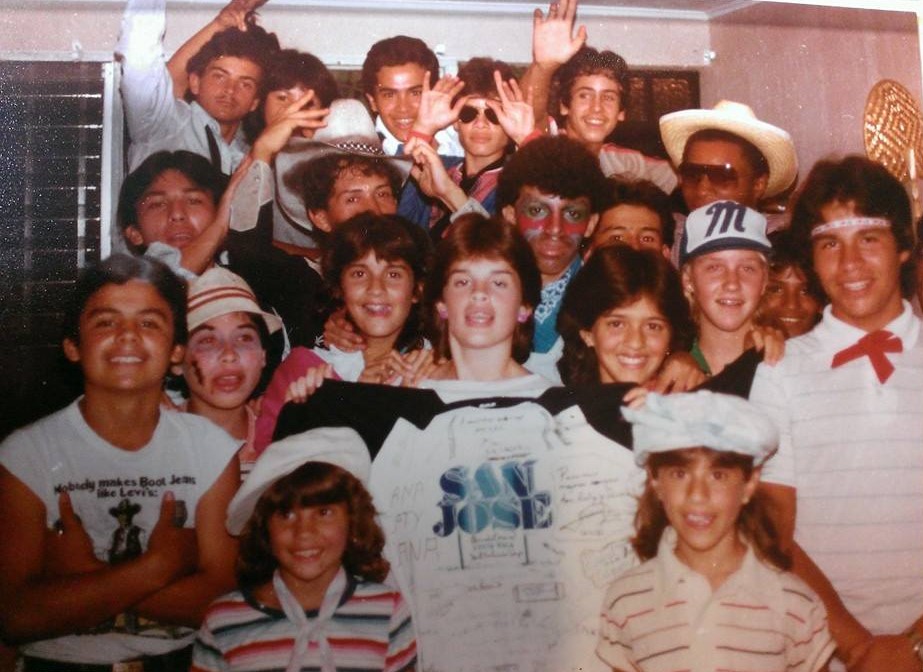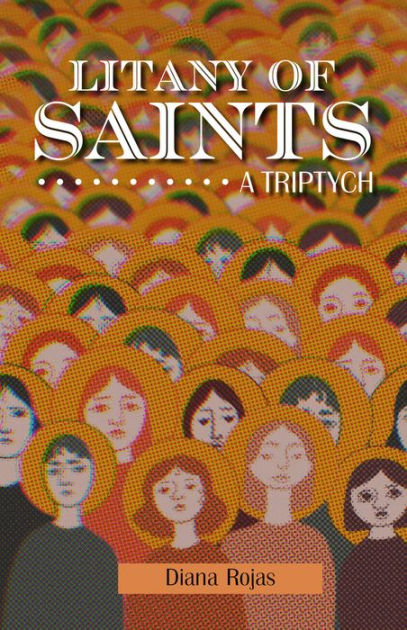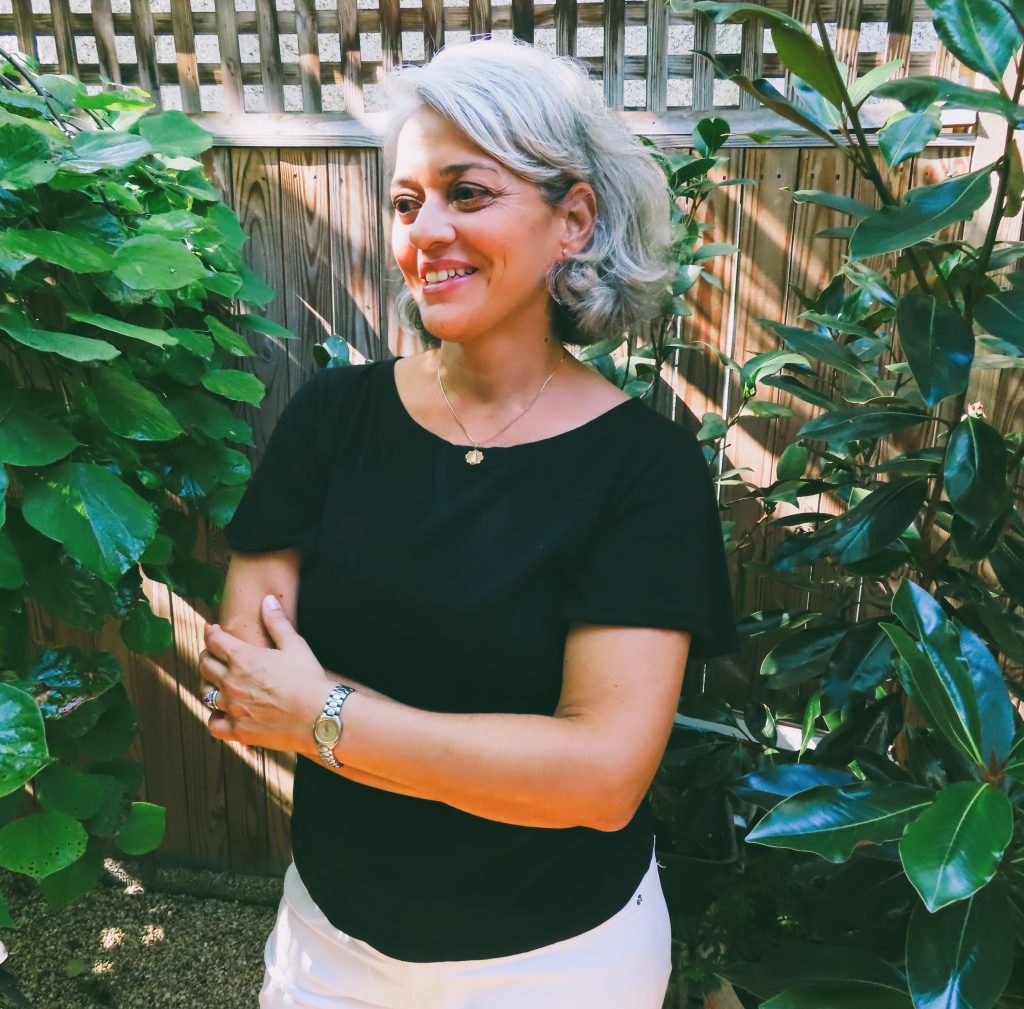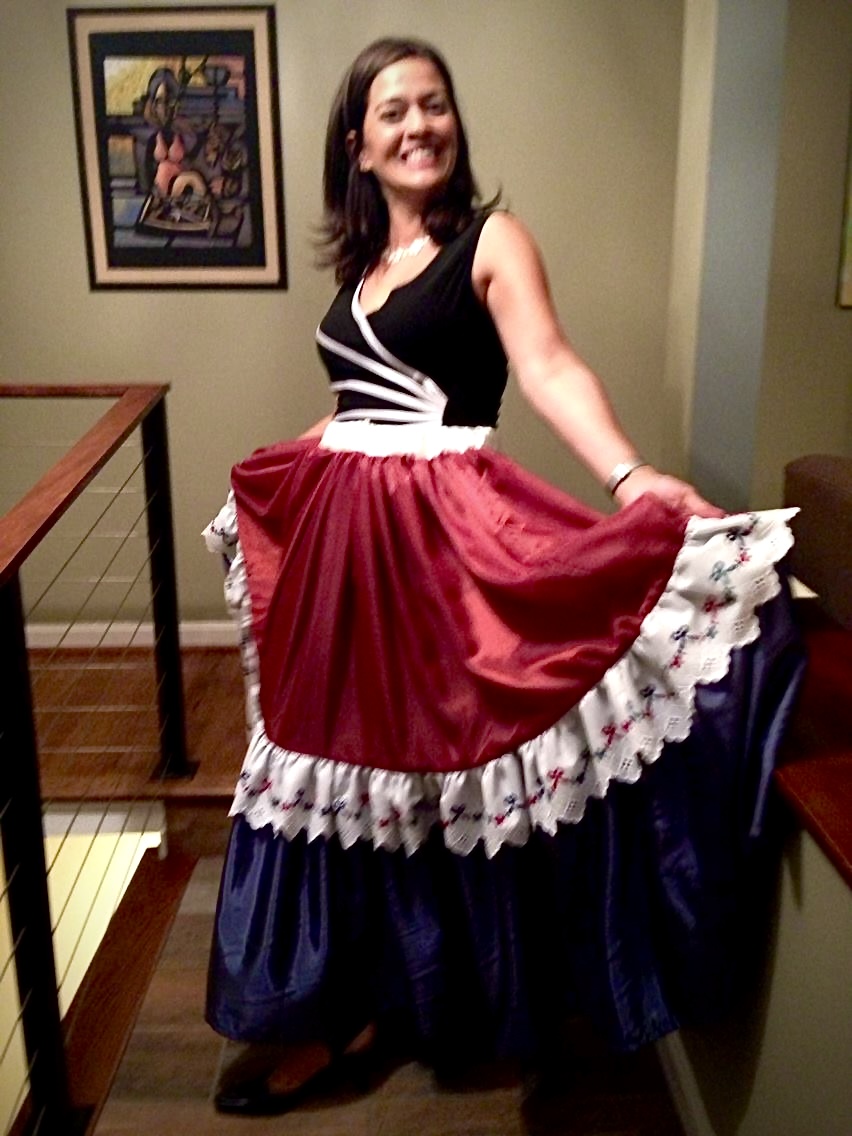Here’s a riddle: If I was Diana, like the princess from K-12, and then later became Diana, with a diphthong and two syllables, what am I?
With the first pronunciation, I can be anyone; the second marks me as Latina. When people ask me what I am, I fear they think I’m other, and I stutter.
My struggles with identity are not new and not based on shame. I am a US-born daughter of Costa Rican immigrants who arrived stateside in 1965. I grew up in beachy West Haven, Connecticut, where we were the only Latinas in our school, but I never felt different from the rest of the kids. We moved to Costa Rica for three years when I was 11, and there became las gringas. For high school, we returned to gritty Paterson, NJ, where I was labeled Hispanic. At 26, I decamped to Washington, DC – interspersed by foreign interludes in Portugal, Brazil, and England, where I was always lumped in with expats and called, simply, American.

(Photo: Diana Rojas,October 1983 )
As one of 60 million plus Americans who hail from the 20 Latin countries with varied ethnicities, races, religions, politics, socio-economics, education, topography, and culture, I find the monolithic label “Hispanic” or “Latina” rings incomplete. It’s overly broad. It has no nuance. It explains too little.

When I stepped away from journalism in late 2020 to write fiction, it wasn’t surprising that identity featured strongly in my stories. My debut fiction, Litany of Saints, tells the stories of immigrants from the same Costa Rican suburb who face challenges to their self-perception, forcing them to grapple with what they think they’re supposed to be and who they want to be.
In “The Lives of Saints,” Felipe and Ruth are chasing the American Dream, but are hamstrung by Ruth’s inability to free herself from the traditional and religious customs of her family. “Las Tres Marías” follows three first-generation American sisters who return to live in their parents’ home country, but come disastrously face to face with an insidious machismo they are unprepared to handle. And in “La Familia,” John or Juan Manuel, a naturalized American, gets pulled back to the country of his birth amid the messy Cold War politics of the early 1980s, forcing him to question his loyalties and his ideas of what it means to be Costa Rican.
The protagonists may be Costa Rican, but their stories and angst are universal. In examining the contextual nature of identity and assimilation, Litany of Saints not only reveals the cultural dissonance migrants experience but also shows that what you are often depends on time and place.
When Litany of Saints was picked up by Arte Público Press, the country’s largest publisher of US Hispanic authors, I had a moment’s hesitation about being pigeonholed as just a Latina writer. But I quickly decided that a press founded and run by people like me would not be expecting me to represent all Latinos, or all Hispanic immigrants, or even just Costa Ricans. A Latino press wouldn’t only parade me out during Hispanic Heritage Month and drape me in an invisibility cloak for the rest of the year. I would not be their token Latina. A Hispanic press would not otherize me. They would see me for what I am: an author of stories.
It took me too many years to understand that some people will always view me as other and will not be satisfied when they ask me what I am, and I answer American. It’s discomforting that the characterization of cultural identity in the US is becoming more polarized and that we seem to be boxing ourselves into expectations of who/what we’re supposed to be. Eschewing a normative American culture needn’t mean labeling oneself narrowly. It just means embracing that we, a country of immigrants, have so many different cultures embedded in it that there is no one normal or real American. We’re all real Americans, and as a daughter of Latino immigrants, I am as American as apple pie and tacos.
So what am I, really?
I’m Diana.

Cover Photo: Diana Rojas showing off her Costa Rican pride, 2013 (Courtesy: Diana Rojas)

Diana Rojas is the author of the debut fiction Litany of Saints: A Triptych, which will be published by Arte Público Press in April 2024. A graduate of NYU, she has written in everything from large daily newspapers to niche newsletters. Diana grew up in Connecticut and New Jersey, has lived in five different countries, and currently resides, taxed and unrepresented, in Washington, DC.
Meet the author, check out dates, times, and locations by clicking, HERE.




